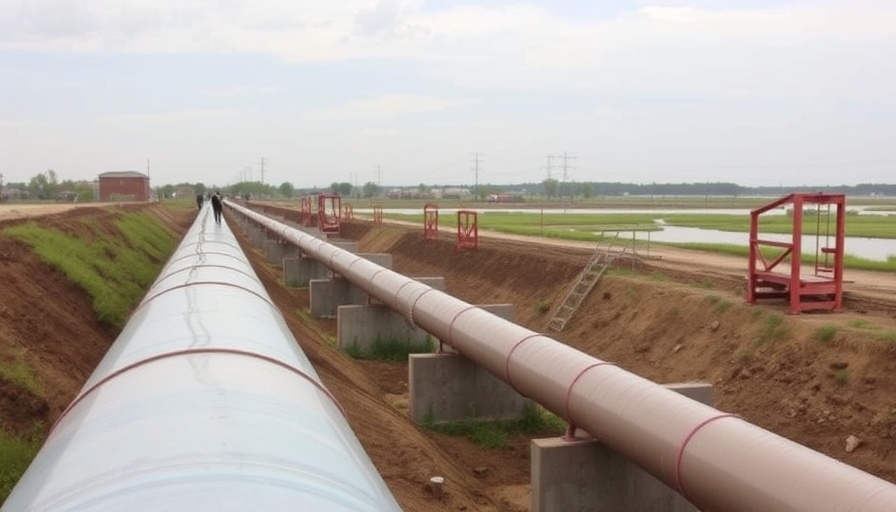
A Game Changer in Dozing Technology: John Deere's 850 X-Tier Electric-Drive Dozer
John Deere has made a significant leap in construction equipment with the introduction of its 850 X-Tier Electric-Drive dozer. Unveiled at the 2023 ConExpo-Con/Agg, this machine represents two years of dedication to refinement and testing, recently showcased at the company's 2025 Construction Field Days event in Sacaton, Arizona.
Innovative Technology Behind the 850 X-Tier
While the 850 X-Tier shares a resemblance with its predecessor, the 850L, the heart of this beast has undergone considerable enhancements. The standout feature is its dual-path electric-drive transmission, known as E-Drive. This innovative system replaces hydrostatic components with a generator and independent electric motors for each track, allowing operators to manage precision and torque better, crucial for tasks like side cutting and powering through tough conditions. As Deere product consultant Cory Brant noted, this redesign enhances the machine's power efficiency, making it an ideal choice for heavy-duty tasks.
Enhanced Performance and Fuel Efficiency
A major shift with the 850 X-Tier is the electric drive’s ability to offer more low-end torque at lower RPMs. The new system allows Deere to eliminate the additional turbo from its 9-liter engine. Consequently, operators can expect up to a 30% improvement in fuel economy while enjoying a quieter environment within the cab—a remarkable change compared to traditional dozers that typically run at higher RPMs.
Operator Experience: Comfort Meets Technology
Operator comfort is paramount in today's equipment design, and Deere excels in this aspect with the 850 X-Tier. The cab has been refined, offering 14% more glass area for increased visibility and an Advanced Vision System that integrates multiple cameras for superior situational awareness. The sophisticated 12.8-inch touchscreen compatible with both 2D and 3D grading enhances usability, allowing operators to switch between grading technologies effortlessly. These thoughtful upgrades are designed to reduce fatigue and improve productivity throughout long working hours.
Why the 850 X-Tier Matters for Contractors
For contractors, the introduction of the 850 X-Tier could translate to a competitive edge. Its impressive specifications promise greater productivity and efficiency, essential in a market that increasingly prioritizes sustainability. Plus, the Electric Drive Component Assurance program offers an impressive 84 months or 15,000 hours of protection for pivotal E-Drive components purchased through December 31, 2026, which helps mitigate risks associated with high-level investments in new machinery.
Refinements to the P-Tier Dozers
Alongside the launch of the 850 X-Tier, Deere has also implemented significant upgrades across its 700, 750, and 850 P-Tier models. The enhancements include the integration of next-gen SmartGrade technology, which provides advanced automated grading capabilities and improved operator control. Features such as heated seats, enhanced climate control, and additional storage ensure that operators can focus on the task at hand without discomfort.
The Future of Earth Moving Equipment
John Deere's advancements suggest a bright future for earthmoving technology. As the construction industry evolves, the need for innovation that enhances efficiency while prioritizing comfort will grow. The adaptability of the SmartGrade system, with plug-and-play options for various grading methods, sets the stage for versatile operations across different job sites.
As the 850 X-Tier begins to ship to dealers, contractors can expect a machine that not only meets but exceeds the demands of modern earthmoving projects. This development marks a pivotal moment in equipment engineering, where efficiency and operator comfort converge to create a new standard in dozing.
 Add Row
Add Row  Add
Add 






Write A Comment